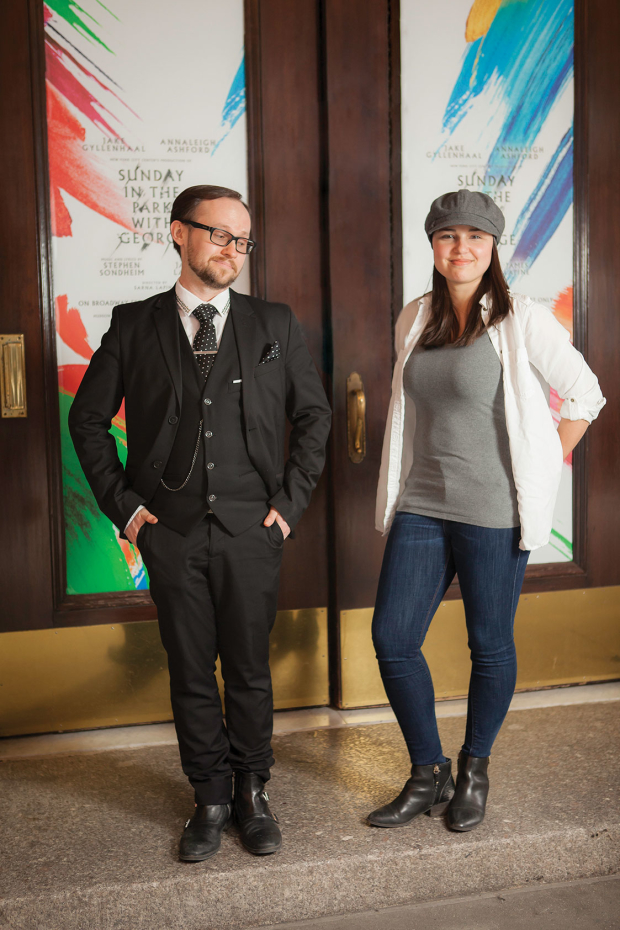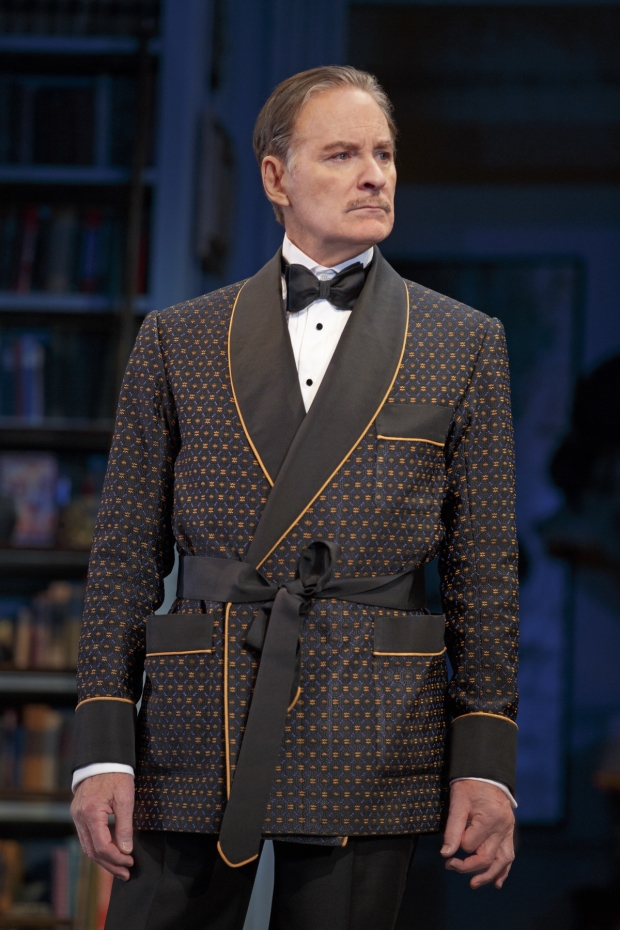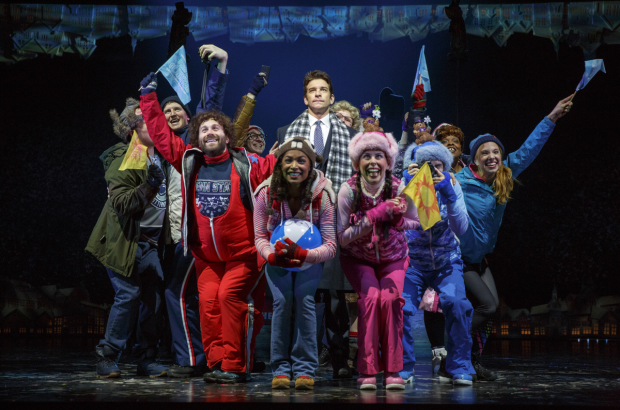Point-Counterpoint: Dressing Up for the Theater
Two TheaterMania critics argue the pros and cons of dressing your best when you see a show.
Is there a dress code for the theater? At most venues, no. Attire is left to the discretion of the patron, something that has resulted in increasingly casual dress from audiences across the country. While many playgoers see this as a good thing indicating a more diverse audience, others see it as disrespectful to the efforts put into every show. Our critics, Hayley Levitt and Zachary Stewart, find themselves standing at opposite ends of that divide. You can see them duke it out in TheaterMania's inaugural point-counterpoint:

(© Seth Walters)
Hayley Levitt: So Zach… judging by your theatergoing wardrobe, it seems you think "dressing up" for the theater is important.
Zachary Stewart: It is completely important to dress up for the theater. So much of our human interaction in 2017 is conducted from behind a screen. Our media and entertainment is delivered in a similar fashion. The theater is one of the few remaining bastions of genuine in-person human contact, so why wouldn't you want to look your best for that? The performers show up and wear a costume, and so should you.
Hayley: That automatically assumes that the audience is part of the performance. Aren't the actors there to serve us, not the other way around?
Zach: They're not waiters, they're actors; and the audience is always the final character in the play. Otherwise, it would be a movie.

(© Joan Marcus)
Hayley: I can play my part just as well in a pair of jeans as I can in a dress. When I go to the theater I'm playing the role of "me" and I can laugh, cry, and respond in every other way exactly the same no matter what I'm wearing.
Zach: To be clear, I'm not categorically opposed to jeans in the theater. It really depends on how you style the jeans and how they fit into your overall look. If you are wearing fitted jeans with a button down shirt and a nice blazer, that is a more acceptable look than jeans and a tank top.
Hayley: I agree we should keep the basic dress code rules of "no shirt, no shoes, no service," but what about jeans and a tank top is inherently disrespectful? Sure, it indicates less formality but is that automatically a bad thing?
Zach: It's a way of saying "the customer is always right" in an age when we should all be concerned about the casual commodification of art.
Hayley: I think we should do everything we can to de-mystify the experience of theatergoing. If we really want to expand audiences, why are we holding on to this mindset that theater is a formal art that can only be consumed under strict regulations? We shouldn't strive to fill audiences with people who look like Richard Gere and Julia Roberts stepping off their private plane for a performance of La Traviata.

(© Chad Batka)
Zach: Of course, you can wear whatever you want — people already do and there is no bouncer at the door of the Lunt-Fontanne to eject the slovenly dressed. I just wish more theatergoers put as much thought into their appearance as the actors, directors, and designers have put into the work they are presenting. It all comes back to respect.
Hayley: Being present and responsive are more important when it comes to showing performers respect in a theater. If the audience, like you said, is the final character in the play, that role starts after the lights go down and no one can see what you're wearing anymore.
Zach: But increasingly audiences are being incorporated into the design of the play. Imagine seeing Natasha, Pierre and the Great Comet of 1812 with a bunch of people wearing brand logo T-shirts sitting on the stage, like garish billboards dotting the Moscow skyline. Theater is not just a consumer product. It is art and theatergoers have a role to play in it.
Hayley: But the anachronism is part of the fun! Who wouldn’t love to see some bro in a Nike T-shirt forced to engage with Josh Groban in Paloma Young's amazing Pierre costume? It's their differences that make that interaction exciting, not their similarities. If blending into the scenery is so important, we should just ask audiences to come dressed like 19th-century Russian aristocrats.

(© Joan Marcus)
Zach: There's enough variation in cocktail and business attire to maintain that anachronism without looking like you’re spending a day at the gym. My final point applies not just to the theater, but life in general: A wise queen once said, "We're all born naked and the rest is drag." Every time you step out of your house, you are telling a story about yourself with your clothes, whether you intend to or not. If you want that story to be, "I threw all my active wear on the floor and rolled around in it before I came to Wicked," then by all means, put no thought into your Broadway ensemble. But I like to think that people discerning enough to seek out theater in our digital age would also be shrewd enough to put together a smart outfit.
Hayley: True, clothes tell a very vivid story. But the story of the guy sitting next to me in mesh shorts and a hoodie is not the one I came to the theater to see. So my only feelings towards him are, "I'm glad you're here" and "I hope you didn't just come from a job interview."









